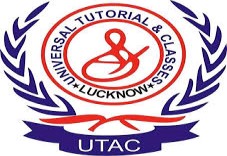Preparing for a test rarely comes without some anxiety, regardless of how well you comprehend the subject. Many would agree that math tests can be particularly frustrating for people of all ages. In years of preparing for math tests, people have discovered many ways to combat preparatory anxiety by trying new methods and techniques for more efficient studying. Preparing upfront is of utmost importance, but there are ways to ace your math test even if you don’t have much time for studying on your hands.
If you have been considering implementing new methods and learning techniques, here are the top simple ways to study for a math test.
Use Practice Tests and Past Examination Papers
When studying for your General Certificate of Secondary Education or GCSE, you can use the Edexcel past papers pages and their archive of past math tests to obtain a more accurate idea of the questions and assignments on your upcoming math test. There are programs for different curriculums, and you can browse and find the level and past tests that you will need to prepare for the upcoming test.
Plan Ahead and Section Material
When you prepare for studying, try to go over the material first and section it into smaller chunks. It is easier to master more complicated concepts and vocabularies when you plan upfront and optimize your efforts. Instead of going overboard with underlining or highlighting in your textbooks, try to engage more actively with the material by using a notebook for writing, examples, and practice.
Limit Distractions
To improve your focus and make the most out of your time studying, you have to identify your most common distractions and take steps to limit or remove them entirely. Create a distraction-free environment, whether that means you go and study in a library or a cafe, setting browsing limitations on your laptop or even your phone, or something else.
Use the Pomodoro Technique
The Pomodoro technique works by using a timer to break up your studying time into smaller intervals with frequent short breaks. In general, you study for periods of about 30 minutes, take 5-minute breaks, and repeat. You can use variations of the Pomodoro technique and adjust the principles and the timing to fit you better.
Enlist Help: Get a Tutor or a Coach
If you have worked with a tutor or a coaching instructor before, you must know that although their help would primarily revolve around the technical part of the assignments, they should be able to steer you in a direction that is better suited to your learning style. Enlisting help is of utmost importance if you want to be sure that you will pass the test with flying colors.
Incentivize With Rewards
In addition to involving your conscience, including your brain’s reward system can motivate you to study better. When breaking the material into smaller chunks, set milestones and goals in your studying plan and reward yourself with something small for every completed milestone. The reward is not as significant as accomplishing the goal, but the mental break helps preserve the incentive for studying.
Take Care of Your Brain
When studying for a test, hard work is rarely more important than taking care of your brain by including adequate rest and nutritious food. You might get tempted to go overboard with all-nighters and even feel as though you finished lots of work when, in fact, you only tire yourself and diminish your potential. Rest and recovery are crucial to keeping your memory and problem-solving capabilities in an optimal state.
Use Flashcards
Once you are positive that you have a good enough overview of the studying material, prepare flashcards and use them to test what you have learned so far by yourself or with someone else. Use questions and assignments in different difficulty levels and mix them up to work on your mental flexibility and ensure you are making the most of your efforts.
Join a Study Group
Many students would agree that study groups make the most difference in achieving optimal results and are particularly helpful when you have to cover a lot of material in a short amount of time. Having a studying partner or joining a group enables you to learn interactively and teach and test one another. Studying in a group can push you to work harder, and the material you conquer in the process will remain in your long-term memory much longer.
Conclusion
No matter at what stage in your studies you currently are or how you have handled preparing for math tests in the past, there are always new methods to help improve your scores. Whether it is past tests and consultations or some rest and a change of environment that will help you achieve better results, you have to try and see what works best for you. Good grades rarely come without putting in hard work, and by trying different methods, you can find the best way to study for a math test and maximize the results of your efforts.
Leave your vote
This post was created with our nice and easy submission form. Create your post!










Like what you read? Give author a thumbs up?
Bookmark this article to read later, drop a remark in comment section and share with your friends..